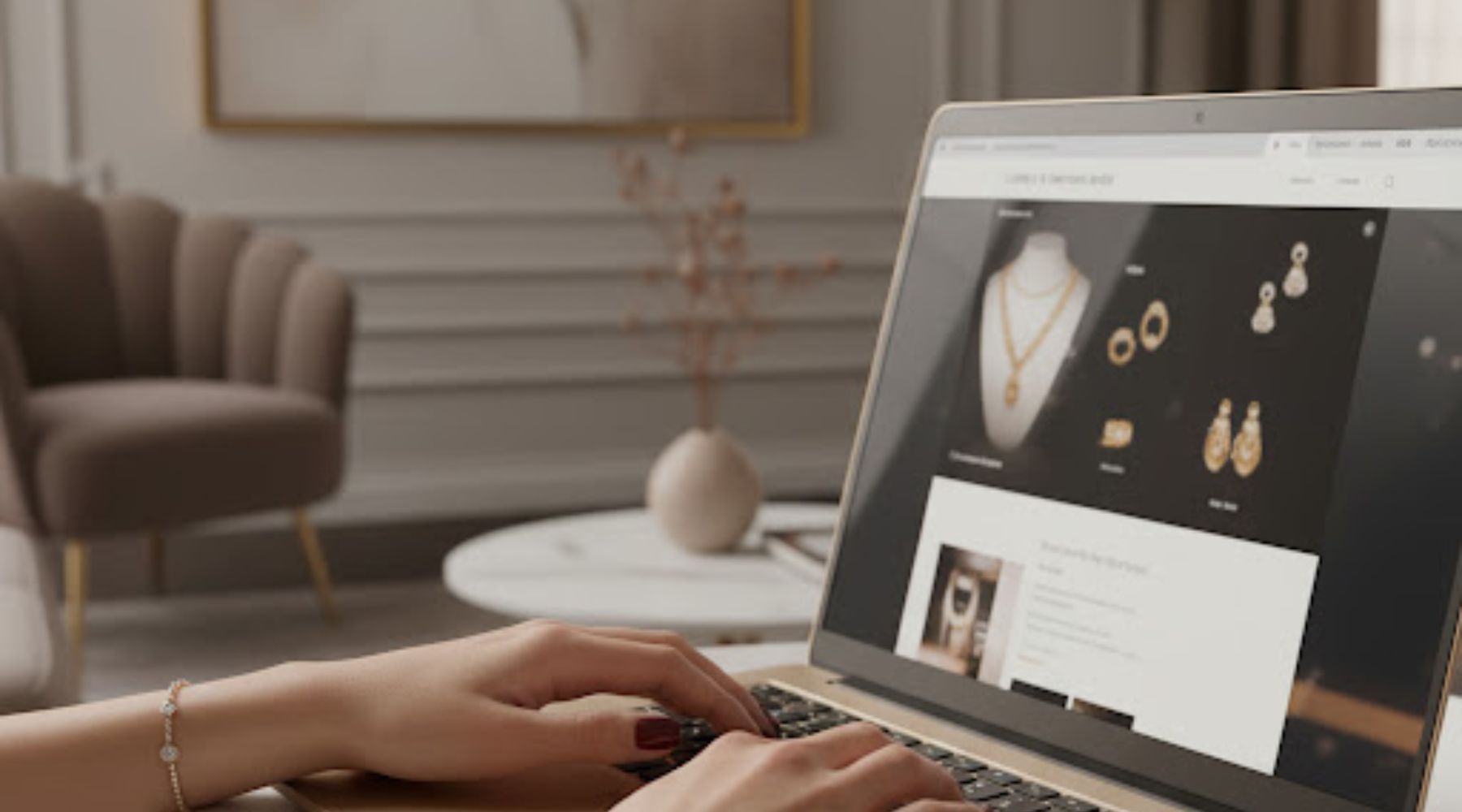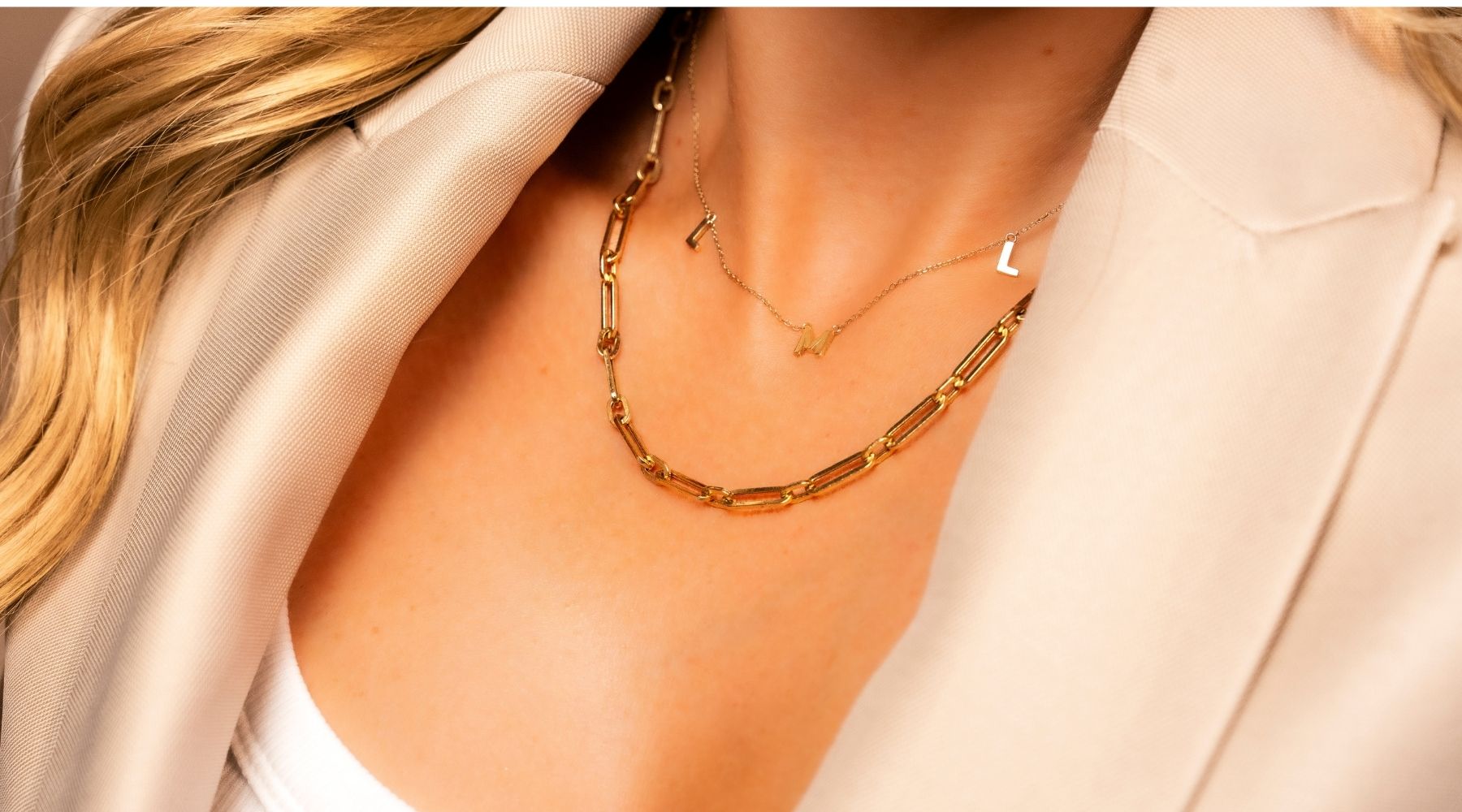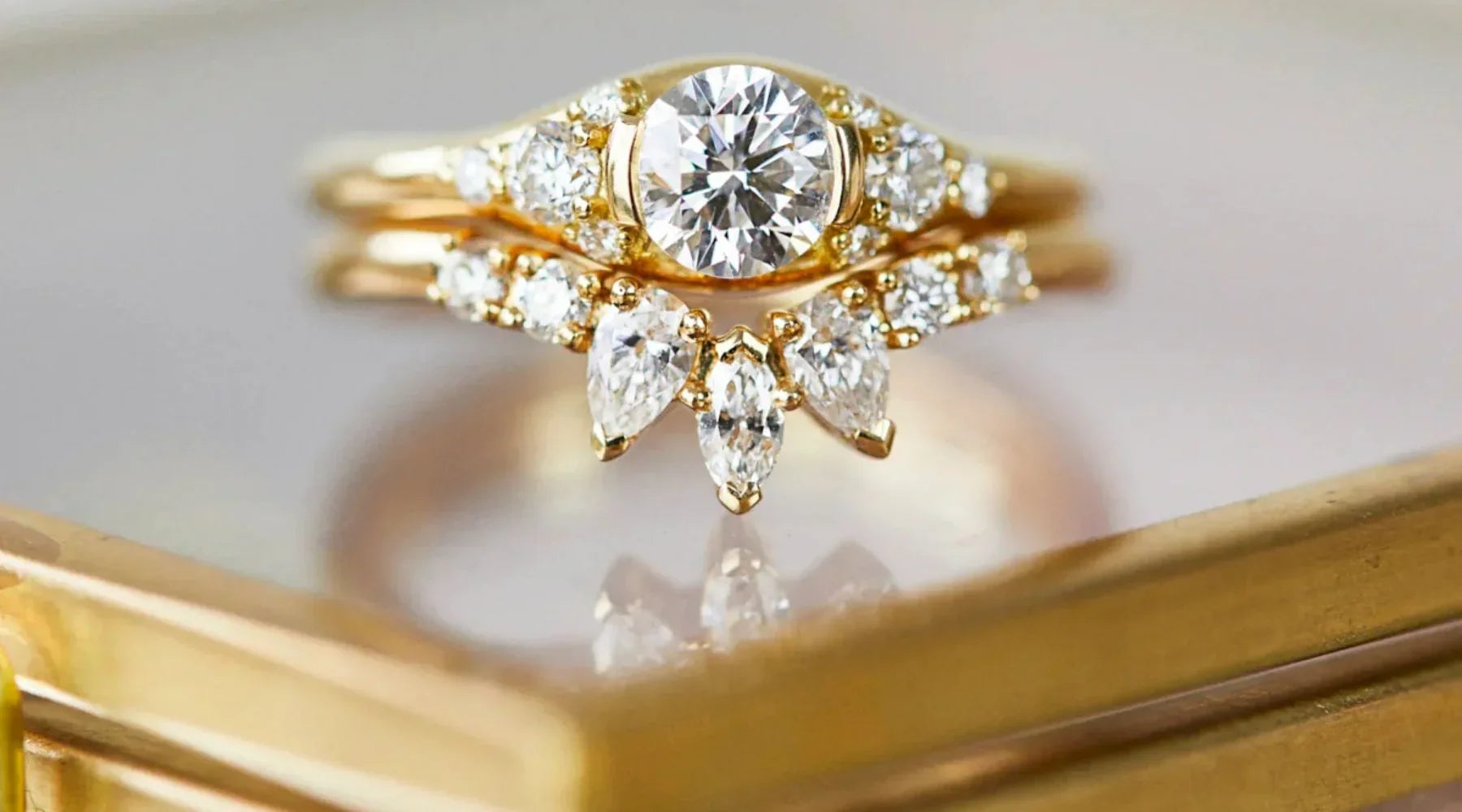
The Ultimate Guide to Confidently Buying Fine Jewellery Online
This guide brings together everything you need to shop confidently, avoid mistakes, and own jewellery that truly tells your story.
Buying fine jewellery online can feel daunting. With scams on the rise, UK consumers lost £1.17 billion to fraud in 2024 (UK Finance), it’s no surprise people worry before pressing “add to cart.” From fake websites to missing hallmarks, the risks are real.
I'm Katie Silver, founder of Argent & Asher, and I've spent years sourcing coloured gemstones, diamonds, and precious metals for clients who want pieces that last for generations.
I've seen the best and worst of online shopping, from clients who secured modern heirlooms they adore, to others who nearly lost thousands to clever scams. This guide brings together everything you need to shop confidently, avoid mistakes, and own jewellery that truly tells your story.
In this article, you’ll learn:
- How to spot genuine hallmarks
- How to verify a GIA or IGI diamond certificate
- Your returns rights under UK law
- The safest ways to pay online
- The red flags of fake websites
- How to judge jewellery quality from photos and video
- Your 10-Point Buyer Checklist
Whenever I speak to clients, the same concerns come up: “How do I know it’s real? What if it doesn’t fit? Can I get my money back?”
1. Verify the seller’s identity
Check for a registered address, VAT number, and memberships like the National Association of Jewellers
➡ Learn more: 5 Red Flags of Fake Jewellery Websites (UK Edition)
2. Look for UK hallmarks
Gold over 1g, silver over 7.78g, platinum over 0.5g, palladium over 1g must be hallmarked. See the official GOV.UK hallmarking guidance
➡ Read more: What Does a Gold Hallmark Really Mean? (Buyers’ Guide with Pictures)
3. Verify diamond or gemstone certificates
Only trust recognised labs like GIA or IGI. Always check the report number online. You can verify via GIA Report Check
➡ Learn more: Can You Trust Diamond Certificates Online? (GIA vs Others, Verification Steps)
4. Read returns and repairs policies
Bespoke pieces (like name necklaces or initial necklaces) are usually exempt. Discover more via Citizens Advice returns rights
➡ Read more: Returns, Refunds & Repairs for Online Jewellery Orders (UK Laws Explained)
5. Use safe payment methods
Credit cards offer Section 75 protection; avoid bank transfers. Learn more through Money Helper’s guide to Section 75
➡ Read more: Is It Cheaper to Buy Jewellery Online or In-Store? (Real Cost Breakdown)
6. Check reviews carefully
Be wary of suspiciously identical reviews.
➡ Learn more: How to Read Customer Reviews (and Spot the Fake Ones)
7. Inspect photography and video
Look for macro shots, hallmark close-ups, and natural light photos.
➡ Read more: The Photo Trap: How to Judge Jewellery Quality from Photos & Video
8. Examine shipping, insurance, and packaging
Every parcel should be tracked, signed-for, and insured.
➡ Learn more: Shipping, Insurance & Packaging: How to Get Jewellery Delivered Safely
9. Understand pricing
Materials, craftsmanship, and aftercare all add up to value.
➡ Read more: The Best 15 Questions to Ask Before Ordering Jewellery Online
10. Test customer service
Ask a question before you buy. Clear, professional answers are a good sign.
➡ Learn more: How to Authenticate Fine Jewellery Before You Buy Online
Yes, if you know what to check. Safe sites show registered business details, hallmark photos, clear returns policies, and offer secure payments. Fraudulent sites hide these things.
Stat: Online purchase scams made up 40% of all UK fraud reports in 2024 (UK Finance).
If something feels off or you’ve already been caught out, take action quickly report fraud directly through Action Fraud.
➡ Learn more: The Top 7 Online Jewellery Scams (and How to Avoid Them)How to Read UK Gold Hallmarks
Hallmarks are your legal guarantee of metal purity. Every gold, silver, platinum, or palladium piece over exemption weight must be hallmarked.
The three compulsory marks:
- Sponsor’s mark
- Fineness mark (e.g., 750 for 18k gold)
- Assay Office mark (London, Birmingham, Edinburgh, Sheffield)
Exemption weights: Gold 1g, Silver 7.78g, Platinum 0.5g, Palladium 1g.
See the Assay Office Dealer’s Notice for examples.
➡ Read more: What Does a Gold Hallmark Really Mean? (Buyers’ Guide with Pictures)

Can You Trust Diamond Certificates Online?
A grading certificate describes a diamond’s cut, colour, clarity, and carat. Only some labs are reliable:
- GIA (global gold standard)
- IGI (widely accepted, especially for lab-grown)
- HRD (European, reputable)
Brand certificates (Cartier, Tiffany, etc.) provide authenticity, not grading. They complement, not replace, GIA-style reports.
How to verify a GIA report:
- Find the certificate number.
- Go to GIA Report Check
- Enter the number.
- Compare the details.
- Check the laser inscription on the stone.
Stat: Over 2.5 million GIA reports are verified online each year (GIA, 2024).

What Are My Returns Rights?
14-day cooling-off period: Applies to most online purchases.
Refund timeline: Retailers must refund within 14 days of receiving your return.
Bespoke/personalised: Not returnable once made (e.g., gold name necklaces, initial necklaces).
Earrings: Returnable if unopened; non-returnable once seal is broken.
Faulty items: Always covered by the Consumer Rights Act 2015.
International orders: May incur customs duties and costly return shipping.
Discover more via Citizens Advice consumer guidance
➡ Read more: Returns, Refunds & Repairs for Online Jewellery Orders (UK Laws Explained)
5 Red Flags of Fake Jewellery Websites

Stat: UK Finance recorded 3.31 million fraud cases in 2024, many from fake websites (UK Finance).
➡ Learn more: 5 Red Flags of Fake Jewellery Websites (UK Edition)
Pay Safely Online: Credit Cards, Section 75 and Chargeback Explained
- Credit cards: Section 75 protection (£100–£30k). Safest for high-value jewellery.
- Debit cards: Chargeback available, but not guaranteed.
- PayPal: Buyer protection (varies).
- Bank transfers & crypto: No protection. Avoid.
Learn more via Money Helper’s Section 75 guide
➡ Read more: Is It Cheaper to Buy Jewellery Online or In-Store? (Real Cost Breakdown)
Shipping, Insurance & Packaging
- Always use tracked, signed-for delivery.
- Ensure the parcel is insured in transit.
- Packaging should be discreet but secure.
- For international orders, check customs and duty charges upfront.
- Film your unboxing for evidence if anything’s wrong.
➡ Learn more: Shipping, Insurance & Packaging: How to Get Jewellery Delivered Safely
Price vs Value
Fine jewellery pricing reflects metal, gemstones, craftsmanship, and aftercare - not just weight or carats.
➡ Read more: Is It Cheaper to Buy Jewellery Online or In-Store? (Real Cost Breakdown)
How to Judge Jewellery Quality from Photos and Video

➡ Learn more: The Photo Trap: How to Judge Jewellery Quality from Photos & Video
FAQs About Buying Jewellery Online
Can I return personalised jewellery bought online?
Usually no. Bespoke or personalised jewellery - such as name necklaces or initial necklaces are exempt from the UK’s 14-day cooling-off period.
Do all gold items need a UK hallmark?
Yes, if above exemption weights.
How do I check a GIA report number?
Use the official GIA Report Check.
Is it safer to buy jewellery online or in-store?
Online offers wider choice and better pricing; in-store allows physical inspection. Many buyers combine both.
What evidence do I need if a website is fake?
Take screenshots, save bank records, and keep emails. Report scams through Action Fraud
➡ Read more: The Top 7 Online Jewellery Scams (and How to Avoid Them)
Is it cheaper to buy jewellery online or in-store?
Often yes - online prices can be 10–30% lower - but always check value (craftsmanship, aftercare, hallmarks).
What’s the safest way to pay for jewellery online?
Credit cards offer the strongest protection. Debit cards and PayPal can help, but never use bank transfer.
Buying Jewellery Online Without Regrets
Over the years, I've helped countless clients avoid the common pitfalls of online shopping from unverified hallmarks to misleading returns policies. My approach at argent + asher is always about clarity, quality, and lasting meaning.
The most memorable pieces aren’t just bought; they’re chosen with care and knowledge. Whether it’s a gold name necklace, a bespoke engagement ring, or a modern heirloom signet ring, the right purchase should always feel like an exciting step, never a gamble.
If you’re considering your next piece, take the time to ask questions, compare options, and choose a jeweller who makes you feel informed every step of the way. When jewellery is bought wisely, it becomes more than an accessory, it becomes part of your story.
➡ Explore: The Best 15 Questions to Ask Before Ordering Jewellery Online









